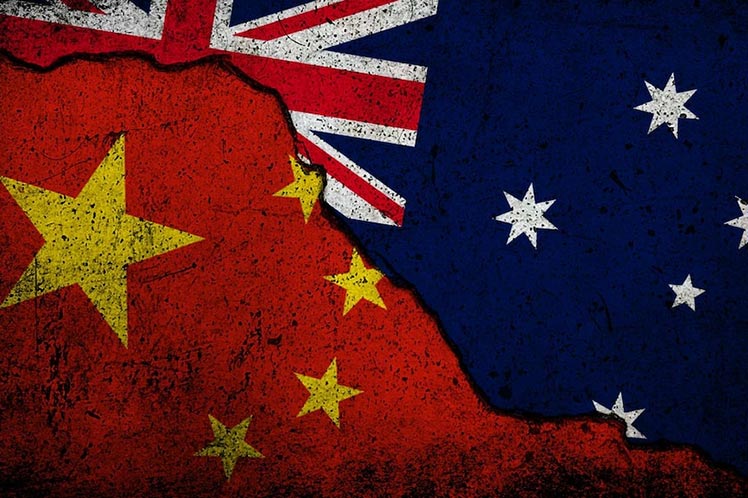According to a press release from the Ministry of Commerce, Wang Wentao and his counterpart from the Oceanic country, Don Farrell, decided to reestablish dialogue mechanisms and resume the sessions of the joint committee on free trade.
They also agreed to strengthen collaboration in green and low-carbon development initiatives, as well as to support e-commerce projects between companies from both countries.
These agreements were reached in the context of the Australian official’s current visit to China, which gives continuity to the reactivation of contacts between authorities of the two governments, after strong disagreements in recent years.
Last February Wang and Farrell held the first meeting in three years on the trade issues, examined the factors that hinder the ties and agreed on the need to expand communication with a view to completely normalize the trade exchange.
The Chinese minister called for finding common ground and keeping the priority on recovering mutual trust, while his counterpart asked for lifting restrictions on exports of wine, coal, beef, barley, medra and seafood because they cost local companies 14 billion dollars a year in losses.
Apart from the trade ministers, earlier there were talks between the foreign ministers of the two countries; and Presidents Xi Jinping and Anthony Albanese.
Since 2018, bilateral ties between the two countries suffered friction, following the veto to the technology giant Huawei to participate in the deployment of Australia’s 5G network.
Differences escalated with the exchange of accusations, a call for an investigation into China’s Covid-19, trade restrictions and a travel alert for Chinese citizens with plans to visit or study in Australia due to security and discrimination concerns.
To this was added the application of anti-dumping measures on wines from the Oceanic state for five years and also a hike in tariffs on barley because they were exported here at prices below their real costs in the local market.
Also in 2021, China canceled indefinitely all the activities planned to be carried out in the context of the economic dialogue mechanism with Australia launched in 2014, as it considered that the country’s conduct affected normal cooperation relations.
Earlier, Australia revoked an agreement between the state of Victoria and the Asian giant to cooperate in the context of the Belt and Road initiative, as it considered it inconsistent with its foreign policy and international relations.
mh/ydr









